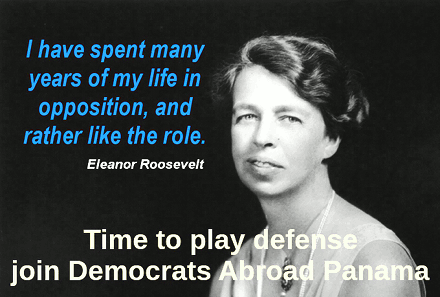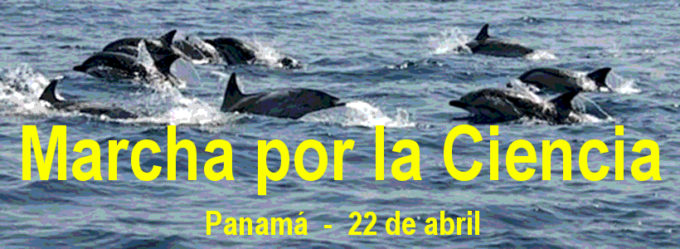
Odebrecht: false alarms?
by Eric Jackson
Modus operandi and misdirection
Odebrecht has played the public corruption game for generations, with increasing complexity but the same basic business model that prevails among construction companies that bid on public works projects in many places. Bidding procedures are rigged to raise the floor under prices, the “losers” get a cut of the action as subcontractors, the public officials who play along get a cut of the action as kickbacks. Odebrecht was the clearinghouse for that game on a Brazilian federal level at least as far back as the 1980s and in 1992 it brought down Brazilian President Fernando Collor de Mello. Norberto Odebrecht vowed to mend his and his company’s ways, and in the years to come his grandson Marcelo Odebrecht took over the company, which went multinational in a big way. But now the revelations of judicial proceedings in many countries show that while the efforts at concealment became far more sophisticated, the basic modus operandi remained the same. It is reasonable to presume that every country and public institution touched by Odebrecht was corrupted. That would include US jurisdictions like the State of Texas, Miami-Dade County and the State of Florida, and some prominent politicians of those places. That would include Panamanian public institutions and public figures.
Presumptions, maybe. But those might be rebutted, or with various combinations of shell games, destruction of evidence and perjury very real corruption will in some cases be impossible to prove.
And then there are misdirection plays. Dan Rather’s career with CBS was ended when right-wing operatives managed to sneak a forged document into his essentially truthful story about George W. Bush’s goldbricking career in the Air National Guard. Panama has seen similar traps set for journalists.
Gustavo Gorriti’s take
Peruvian journalist Gustavo Gorriti, who worked with Panama’s La Prensa for a time, and while here he also fell victim to one of those. Former President Ernesto Pérez Balladares came to office with the help of a donor base that was thuggish in many ways, and Gorriti was investigating that. Some $51,000 in campaign contributions from Cali Cartel drug smuggler José Castrillón Henao had been shown to have made to the Pérez Balladares campaign. The Peruvian was fed a forgery, a purported copy of a check for $5,000 by a company convicted in Italy of money laundering, made out to then Attorney General José Antonio Sossa. Publication of the forgery brought down discredit and prosecution on Gorriti and La Prensa, and effectively ended an investigation into demonstrably corrupt campaign financing.
Gorriti never outed the source from which he got that bogus document. Eventually he put the incident behind him and went back to Peru, where his career included many new masterpieces of good investigative journalism. Toro Pérez Balladares went on his merry way. He has never been convicted of anything but questions about government contracts and the sale of Panamanian visas and passports to Chinese citizens seeking to enter the United States have forever marred a reputation already tainted by the Castrillón Henao connection. It’s one of the big reasons why his political party, the PRD, rejected Toro’s comeback bid in contest for party secretary general last year.
Peru is adjacent to Odebrecht’s home country, Brazil, and was one of the first places where the construction giant went abroad. Now it appears that all Peruvian presidents starting in the 1990s, and many opposition political figures of those times, have taken money from Odebrecht. The United States, in denial about its own Odebrecht scandals in which payoffs to former Florida Governor Jeb Bush and former Miami-Dade Democratic Party boss Xavier Suarez have been documented, is now harboring one of the high-profile Peruvian suspects, former President Alejandro Toledo.
But Gorriti, whose reports dogged Toledo and dashed any probability of the latter’s establishment of any enduring political party or tradition, sounds a note of caution about the ongoing Odebrecht scandals. In a column published in Spain’s leading newspaper, El Pais, Gorriti recounts the concerns of one of the Brazilian judges most responsible for the Odebrecht revelations, Sergio Mora. The jurist fears a set of presumptions that unfairly tarnishes all Brazilian companies, and the notion that only Brazilians pay kickbacks on public works contracts. The journalist argues that no Brazilian company “seduced” an honest Peruvian public official into becoming corrupt, that attributing the Odebrecht scandal to “Brazilian imperialism” is a broad-brush smear that both misdirects public attention from some of the real problems and the real bad actors and penalizes a lot of good people who work for bad companies. With respect to Odebrecht and its ilk, Gorriti opines:
The method that was used in big corporate corruption cases like those of Siemens and Alstrom should be applied to them. It’s not a matter of shutting down companies, leaving many innocent people as collateral victims, but obliging them to reform and to return everything that they stole.
“Reform” to Gorriti includes getting rid of those who personally approved or performed the illicit acts, and to him proper restitution is not figured as the amount of the bribe but a multiple of that to account for the proceeds of crooked transaction and the profits from the investment of those proceeds. But he’s into leaving innocent people alone, and letting them go about their work despite an association with crooks.
Odebrecht, Panamanian secrecy and the Mottas
One of the things that trapped Gorriti when he was working for La Prensa was Panamanian secrecy. To be sure, there were the laws about banking, corporate and campaign contribution secrecy in his way. The culture of secrecy is perhaps more debilitating to journalism than the laws. In any case, Gorriti had no ready way of verifying that bogus check. He relied on an informant, and that informant may have been an honest person who in turn had fallen for a deception spun by a third person. “Usually reliable sources” can have their disastrous anomalies.
And what are the sources for the Panama incarnations of the Odebrecht scandals? The complaint recently filed by Minister of Security Alexis Bethancourt relies upon data developed by Swiss prosecutors, particularly about the alleged money laundering activities of former President Ricardo Martinelli’s two sons. Attorney General Kenia Porcell went to Brasilia to meet with counterparts from 13 different countries, and they agreed to share information. Marcelo Odebrecht and his erstwhile top corporate entourage are singing to Brazilian authorities to reduce their jail time. Prosecutors in other countries, most notably for Panama in neighboring Colombia, are working the leads at their ends. In Panama there is very little independent work to show — a lot of posturing, a lot of excuses about why the law does not allow the enforcement of the law, a lot of sneering obstruction in the legislative and judicial branches and an executive who pleads that he can’t interfere, even to clean his own governmental and party houses.
And so it is that we learn from Colombia about how Odebrecht, as in Brazil and other places, bankrolled presidential campaigns by way of donations that were often in kind and always hidden behind multiple fronts. As in, say several Colombian periodicals, a scheme revealed to prosecutors by their country’s former vice minister of transportation, Gabriel García Morales, wherein in exchange for a lucrative highway contract Odebrecht moved some $6.5 million into the 2014 campaign of President Juan Manuel Santos. (The Brazilian company, so it is alleged by various sources, covered all bets by also covertly donating to the candidate whom Santos defeated, Óscar Iván Zuluaga. It also paid off the FARC rebels, for whom Santos was their great nemesis when he was defense minister.) The funding for Colombia’s presidential race, it is reported, was laundered through various intermediaries and fronts, some of them Panamanian.
Of particular note on the Santos side, it is alleged by the Colombian weekly Semana that a Panamanian publicity firm, Impressa Group Corp, was indirectly hired with Odebrecht money to produce campaign signs and posters for the Colombian president. The Santos campaign also received Odebrecht money for polling which came, it is alleged, through a Panamanian company called Paddington and then a Colombian PR firm called Sancho BBDO.
But between Odebrecht and these poster and polling donations there was a reported maze of at least eight companies through which money passed. Figuring in this alleged operation was the Colombian businessman Enrique Ghisays, who had a company called Encla SA, which in turn did nearly $1 million in transactions with Colon Free Zone giant Motta Internacional, flagship of Panama’s biggest economic combine that includes Copa Airlines, the TVN television network and many other businesses. The money, it is alleged, flowed through Encla to another company called De Lurion Trading, and then the money trail went eventually into the Santos campaign.
So have the Mottas been corrupted by Odebrecht? They are quite emphatic — as in full-page newspaper ads — that this is not the case. Ghisays, they say, was a client between 2010 and 2013, to whom they sold some $931,000 worth of household appliances. It was nothing more than that and they have all the documents to prove it.
Of course, money laundering through the Colon Free Zone has often involved overstated or otherwise false invoices. The paper trail in itself is unlikely to resolve any questions.
Then you can get into the calculus of means, motives and opportunities and ask questions not only about Motta Internacional and those in and around it. One should also inquire about people with business or political reasons to denigrate the Mottas.
On top of that one must be on the lookout for criminals looking to distract attention from themselves. If resentments against the rich — or anti-Semitism — make it easier for someone to believe in a fabricated cloud of suspicion, so much the better for those who would distract. Playing to base prejudices in such situations is as common as white petty criminals in the USA trying to pin their offenses on blacks and as historic as kings, dictators and other political figures playing ethnic hatred cards.
Were Panama in a position to call in all of the organizations and the individuals responsible for them, and look at all of their banking and corporate records, then get into phone calls, emails and other communications that leave traces, there would be a good chance that the whole matter would be cleared up. On paper prosecutors do have such powers, but they are generally unexercised.
Still, Odebrecht secured a lot of public works contracts in Panama, has a worldwide modus operandi and should be suspected of having made plenty of payoffs to public officials here, laundering the money through both legitimate and shell private businesses.
But it’s a large company, with many operations, which felt the need to compartmentalize its corruption in a special bribe department — the “Structured Operations Division” — in part to keep most of its own employees from knowing and telling the score. That sort of secrecy could help guilty parties to point fingers in other directions, and where authorities are not particularly eager to get to the bottom of the story that might suffice.
With respect to Panama, Motta Internacional and many individuals the scandal is at the point where questions are being raised and investigations demanded. But it’s far from the point where we have solid and complete answers to questions that have been raised.
~ ~ ~
These announcements are interactive. Click on them for more information.











